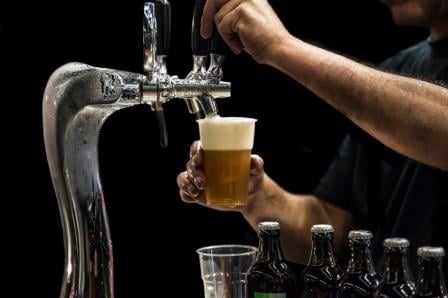

Grease fires, drunk patrons, employees dipping into the till, contaminated food – risks abound for restaurant and café owners. The risks make insurance crucial if restauranteurs want to stay on top.
And with people eating out more nowadays, and with more pop-up eateries and food trucks out there, there are opportunities for brokers to try and cover the growth, explained Adam Mitchell, president of Mitchell Whale Insurance Brokers.
“I think things are changing in society right now,” he said. “People are eating out a whole lot more. I think you’re going to see more pop-up locations … and anyone thinking they can do it. And food trucks are a lot more popular. It’s a changing landscape.”
Search and compare insurance product listings for Liquor Liability from specialty market providers here
There are four key risks in insuring restaurants, Mitchell said.
“You have places that call themselves restaurants that are really bars,” he said. “And bars have fights and injuries and all kinds of other litigious [behaviour]. You have food poisoning and spoilage and all the health safety concerns with storing the food. And you have active heating and fire all the time – you have open-flame grills around grease, and you also have hot utensils, and sharp ones. And past that, you have a whole lot of cash and a lot of human liability with servers and theft.”
Despite people eating out more, though, and the vast sea of dining options, particularly in the large built-up urban areas, the market for restaurant insurance isn’t huge.
And Sean McNamara, commercial sales broker at Mitchell Whale, said the market shrinks even further once booze is introduced into the equation. Most carriers shy away from any venue that wants to serve alcohol, he said.
Read more: What is liquor liability insurance?
“Liquor liability … is a large piece of the risk,” McNamara said. “Once liquor is involved there are a lot of companies that just won’t touch it [a restaurant’s insurance coverage].
“The market is small to begin with. A lot of companies don’t want to touch true restaurants – a lot of companies want five years in operation in the same location with the same owners. Then once you add liquor into it, the number of companies … shrinks substantially.”
To add in liquor to a policy, brokers are using more “substandard, high risk” markets to place business, he said.
For the restaurants, though, it makes a lot of sense to seek insurance – even if finding the right policy can be a challenge: “The premiums aren’t that astronomical,” McNamara said.
Related stories:
Insurance requirements could sink iconic floating restaurant
Hospitality insurance calls for brave brokers
